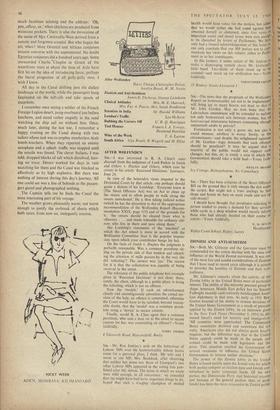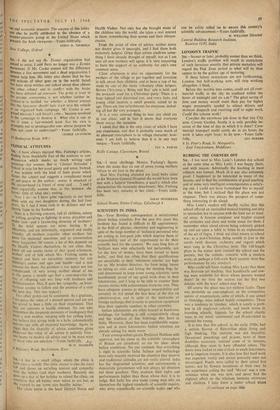ZIONISM AND ANTI-SEMITISM
SIR,—Both Mr. Gilmour and the Spectator must be commended for the article dealing with the aims and influence of the World Zionist movement, It was one of the most fair and candid considerations of Zionism that I have read in recent years although it is certain to provoke the hostility of Zionists and their s) pathiscrs.
Mr. Gilmour's remarks about the activity of the Zionist lobby in the United States were of particular interest. The ability of this minority pressure group to shape American Middle East policy has (as Senator Fulbright recently said) seriously handicapped Amer- ican diplomacy in that area. As early as 1951 Ben- Gurion boasted of his ability to reverse decisions of the United States Government as a result of pressure applied by the Zionist lobby, In an interview given to the New York Times (November 5, 1951) he dis- cussed Israel's need for security and immigration. 'All countries were approached. The Communist States sometimes declined and sometimes did not reply. Americans also did not always grant Israel's requests, but the difference was that in the United States appeals could be made to the people and contact could be made with legislators and the press. This situation enabled the Government on several occasions to influence the United States Government to reverse earlier decisions.
The power of the Zionist lobby in the United States is based mainly upon the Jewish vote for which both parties compete at election time and Jewish con-
tributions- to party campaign funds. Of the two parties, the Democratic Party (for historical reasons and because of the general parlous state of party funds) has been the more responsive to Zionist politi-
and economic pressure. The success of this lobby also be partly attributed to the absence of a nter-pressure group in the United States which cents the Arab viewpoint.—Yours faithfully, JAMES D. THEBERGE College, Oxford cal • Can COu Pre
Iv,







































 Previous page
Previous page